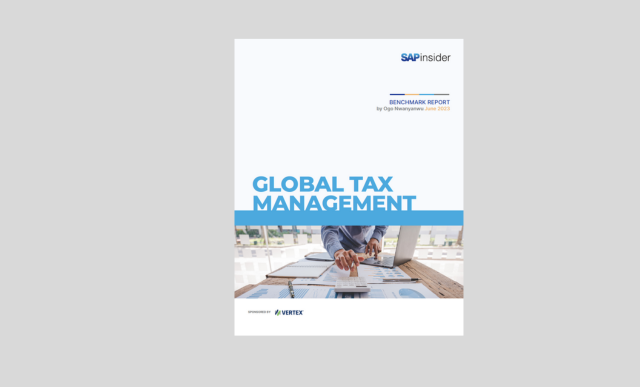What SAP Customers Need to Know for Employee Tax Filing
An Overview for US Companies of the Revised Federal Form W-4
When it comes to payroll processing, SAP customers in the US need to maintain employee tax profiles for federal, state, local, and territory taxes that can integrate with their back-end payroll systems, such as SAP ERP Human Capital Management or SAP SuccessFactors Employee Central Payroll. As you might already know, the Federal Tax Cuts and Jobs Act (TCJA), which took effect in January 2018, is the most comprehensive overhaul of the US tax code since 1986 and makes significant modifications to both corporate and individual taxes. For individuals, the TCJA changes altered the federal income tax brackets, suspended personal exemptions, increased the standard deduction, increased the child tax credit, and limited or discontinued certain deductions. These provisions are currently set to expire on December 31, 2025.
The TCJA changes have had a major effect on both federal tax filers and those who pay state income taxes. The most notable of these is the suspension of the federal personal exemption/withholding allowance and the corresponding impact on the federal withholding tax calculation and the federal document for the Internal Revenue Service (IRS) Form W-4, Employee’s Withholding Allowance Certificate.
Explore related questions
What You Need to Know About the New Federal Form W-4
In September 2018, in response to feedback from the payroll and tax communities, the IRS announced that it would delay the Form W-4 revisions until January 1, 2020. The 2020 version is expected to fully reflect tax law changes made by the TCJA and help employees improve the accuracy of their federal income tax withholding.
The new form includes three filing statuses (single or married filing separately; married filing jointly or qualifying widow/-er; and head of household), removes withholding allowances, and adds three sections where employees can enter multiple jobs, exemptions for dependents and other anticipated tax credits (such as education tax credits and the foreign tax credit), and other adjustments to income that will either increase or decrease withholding.
Below is information* that companies need to keep in mind for next year:
- Beginning in 2020, all new employees must use the redesigned form, and any employees who wish to adjust their withholding must use the redesigned form.
- Employees who have submitted a Form W-4 in any year before 2020 will not be required to submit a new form merely because of the redesign. Employers can request all employees to submit new Forms W-4 using the redesigned version of the form. However, employees are not required to submit a new form.
- New employees who fail to submit a Form W-4 are treated as a single filer with no other adjustments.
- If an employee only completes Step 1 (Filing Status) and signs the form, withholding will be computed based on the employee’s filing status’s standard deduction and tax rates, with no other adjustments.
- The 2020 withholding tables have been revised to accommodate both employees who have submitted a Form W-4 in any year before 2020 and employees who have submitted a 2020 Form W-4.
- The IRS provides instructions in the 2020 Publication 15-T, Federal Income Tax Withholding Methods, on the additional amounts that should be added to wages to determine withholding for nonresident aliens.
How to Manage These Changes
With these changes in mind, the use of a proficient automated tax assignment and forms solution to maintain employee tax profiles for federal, state, local, and territory taxes while easily integrating with your SAP payroll is imperative. TaxProfileFactory, offered by SAP partner Business Software, Inc.,** creates employee tax profiles automatically, saving substantial time, effort and money, while greatly improving overall payroll processing. Employees can quickly and easily complete their forms on mobile devices reducing data entry errors with auto-populated form fields. For more on TaxProfileFactory, visit here.
* All information, content, and materials provided herein are for general informational purposes only and do not, and are not intended to constitute legal, tax, or accounting advice. Readers should contact their attorney or an accounting professional, as applicable, to obtain advice with respect to any particular legal, tax, or accounting matter.
** BSI is a registered trademark of Business Software, Inc. TaxProfileFactory is a trademark of Business Software, Inc.








